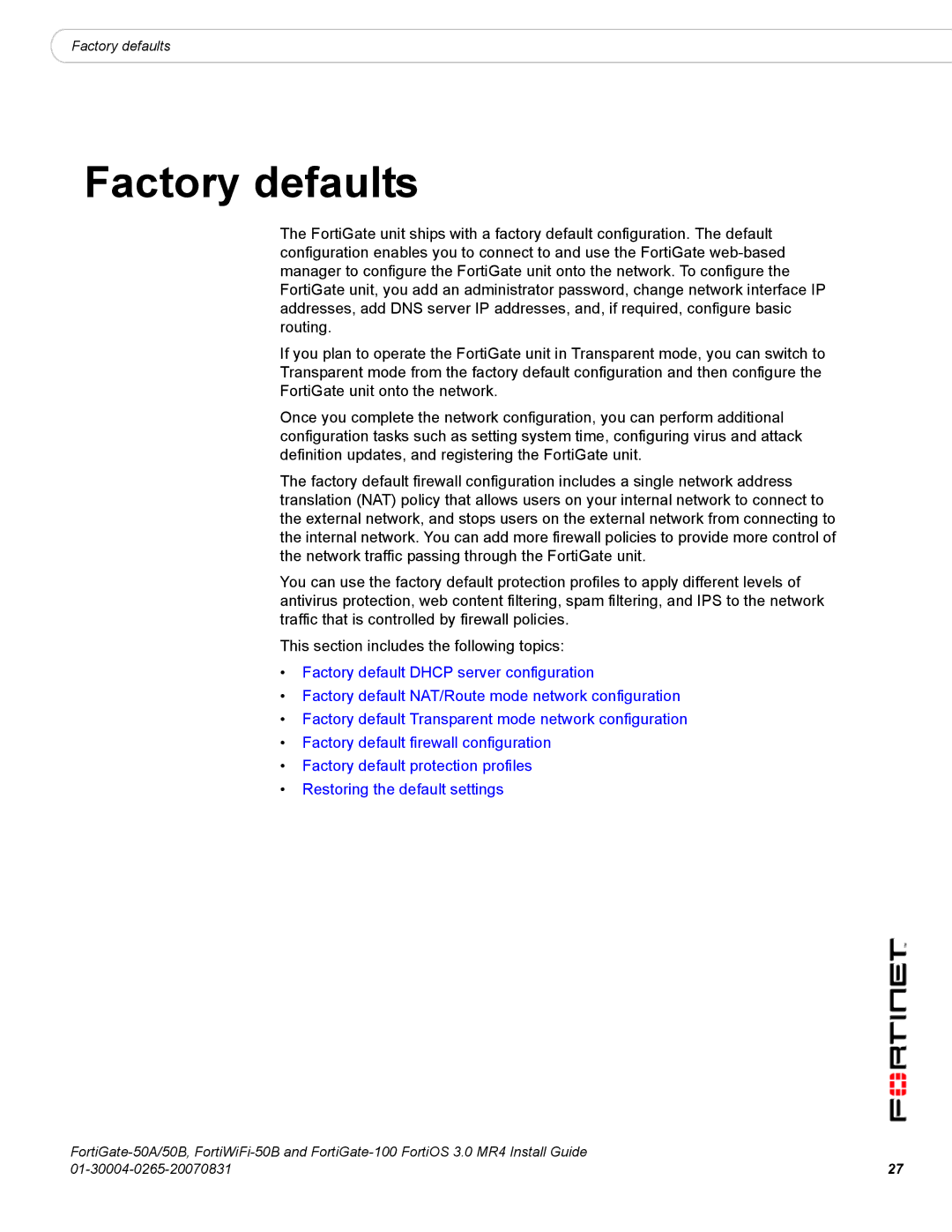
Factory defaults
Factory defaults
The FortiGate unit ships with a factory default configuration. The default configuration enables you to connect to and use the FortiGate
If you plan to operate the FortiGate unit in Transparent mode, you can switch to Transparent mode from the factory default configuration and then configure the FortiGate unit onto the network.
Once you complete the network configuration, you can perform additional configuration tasks such as setting system time, configuring virus and attack definition updates, and registering the FortiGate unit.
The factory default firewall configuration includes a single network address translation (NAT) policy that allows users on your internal network to connect to the external network, and stops users on the external network from connecting to the internal network. You can add more firewall policies to provide more control of the network traffic passing through the FortiGate unit.
You can use the factory default protection profiles to apply different levels of antivirus protection, web content filtering, spam filtering, and IPS to the network traffic that is controlled by firewall policies.
This section includes the following topics:
•Factory default DHCP server configuration
•Factory default NAT/Route mode network configuration
•Factory default Transparent mode network configuration
•Factory default firewall configuration
•Factory default protection profiles
•Restoring the default settings
27 | |
